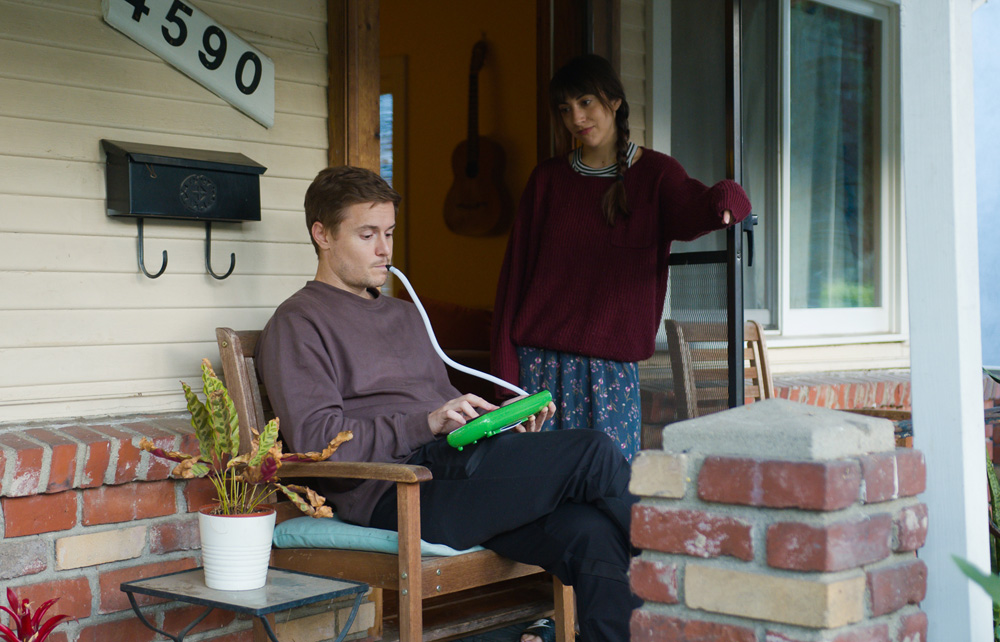It may seem too early to offer a fair evaluation of “The End of Us,” the first narrative fiction film I’ve seen set in the year of COVID-19 and invoke the virus as a central plot point (yet far from the only one even within the confines of SXSW, where it premiered this week). Yet it not only feels right in the moment, but built to last beyond as a cunning relationship comedy, tapping into everyone’s worst fear during this terrible year, apart from its most serious implications of actually contracting the virus or the economic havoc it’s wreaked, when it tells the story of Nick (Ben Coleman) and Leah (Ali Vingiano), a couple that makes the unwise decision to break up mere hours before quarantine went into effect, leaving no real option to leave one another until it lifts.
Co-writers/directors Steven Kanter and Henry Loevner, who handle almost every other task on the movie to keep the crew small (besides producer/production designer Claudia Restrepo), make the wise decision upfront not to present Nick and Leah as overly angry at one another, making one believe their four-year relationship has simply run its course when Leah’s frustration with Ben’s lack of ambition and small personality tics finally boils over after he questions how supportive she’s been in spite of being the primary breadwinner for the house. Unfortunately for them both, Nick has no nearby family and Leah can’t fathom him moving into his friend Hector’s garage, so a detente is reached, though she continues to be exasperated by his more casual attitude towards disinfectant and the fact that her skin care cream seems to be disappearing at a suspicious rate.
Despite their capacity to aggravate each other, Coleman and Vingiano are utterly ingratiating as Nick and Leah, making disputes over Netflix passwords and cleanliness endearing as you can see what worked in their relationship and what didn’t. Both seem to be at peace with putting their romantic past behind them until a co-worker of Leah’s (Derrick Joseph DeBlasis) begins to start appearing with more and more frequency at first online and then six feet apart and possibly less, driving Nick mad and leading to a lightning rod of tensions inside the house that could have less to do with one another than the fact that they’ve been cooped up for months. Banter and Loevner get the microaggressions that have cropped up during this time of cabin fever just right, one of the clear benefits of wasting no time to film, but it’s savvy in its timeless observations of a pair who may be better off as friends, truly growing apart as life takes them in different directions.
Remarkably, though Nick and Leah find themselves rehashing the same arguments, “The End of Us” never feels stuck in a loop, constantly refreshed by the fact that the directing duo never revisit the same shot twice in spite of largely staying in one location and Coleman and Vingiano keep the banter lively. If all this time spent confined at home has offered the chance to reconnect with life’s simple pleasures, “The End of Us” feels like one such discovery when all it takes is a pair of delightful actors, a sharp script and some lovely camerawork to create a film that’s this engaging.
“The End of Us” will open in select theaters on December 3rd and be available on demand on December 7th.




